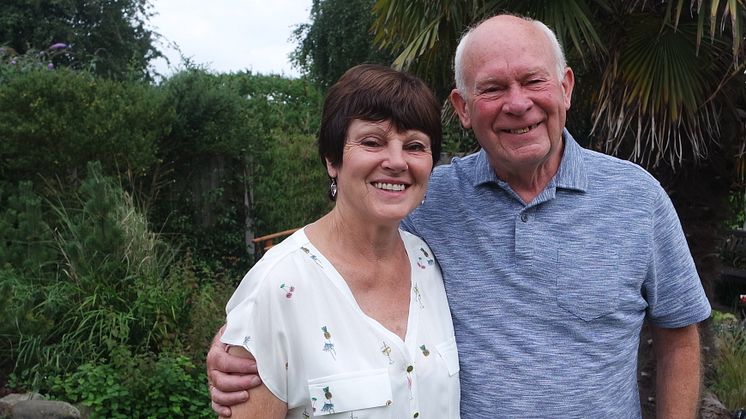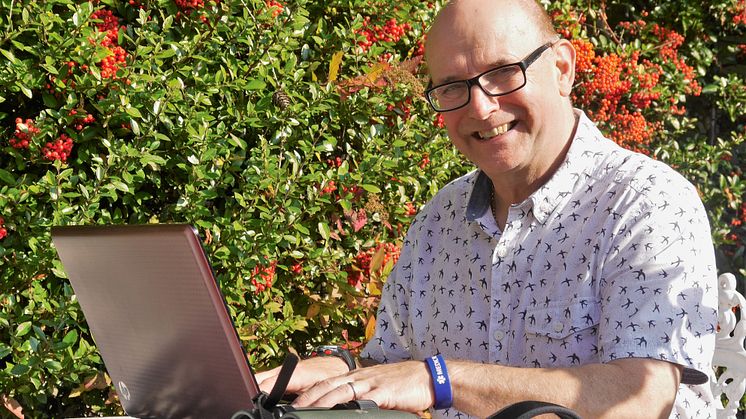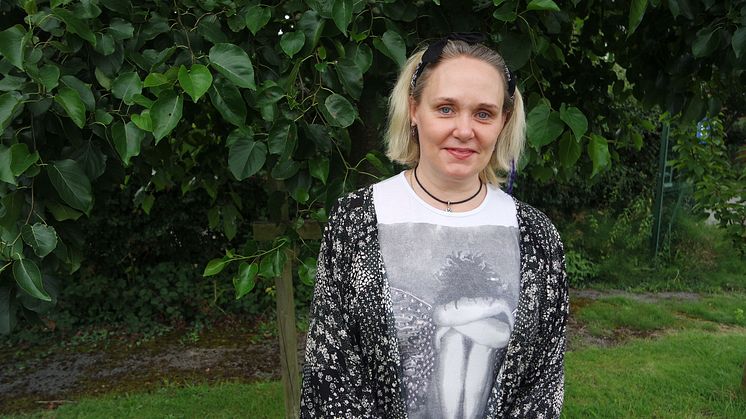
Press release -
Wroot stroke survivor adds his voice to Lost for Words campaign
Wroot stroke survivor John Parry, 74, is one of the thousands of people living with communication difficulties after a stroke.
Grandfather John was a well-respected prison officer and governor, managing some of Britain’s most notorious prisons for around 35 years before he retired. John started writing a book about his life and career, and he was three quarters of the way through before his stroke.
John was at home with his wife Pat when he collapsed in December 2016, and his family were told to expect the worst. When he awoke in Scunthorpe Hospital, John had no idea what had happened and thought he’d been in an accident. John’s stroke had taken away his ability to read and write, and most of his speech.
John said: “I could talk a little bit but I realised I had a problem. Every day in hospital I kept trying to write, sometimes at 2 o’clock in the morning. I now know these things don’t improve overnight. It’s very frustrating, but I know to listen to people who are trying to help.”
John was discharged from hospital just before Christmas 2016, and has been supported by the Stroke Association during his recovery. He attended an eight week Communication Support workshop organised by the charity, which helped him to find ways to improve his communication.
He says: “The team has helped me so much. When they talk to you, it makes you realise how much you’ve done and how far you’ve come.”
Now John practices his writing every day, keeping notebooks in the house to jot down words when he thinks of them. Because he can no longer write himself, his daughters are planning to help him to finish his book, using a Dictaphone to record John’s words and type up the rest of the story.
John adds: “There’s lots I can’t do and I now accept that. It annoys me that I can’t write yet and I can no longer drive. Sometimes I’m dying to say something but it won’t come because it’s not there. When that happens, I have a minute to think and try to find a different way of saying it.
“I need to remember that it’s not going to all happen overnight. Before my stroke, I never had trouble speaking to people. Now it’s different. You never know how things are going to go. My stroke affected my confidence but going to the communication groups has helped. I like to talk to as many people as I possibly can to help me improve. My grandchildren also help me with my communication activities at home on the iPad.”
The Stroke Association’s Lost for Words campaign aims to raise awareness of the challenges stroke survivors with communication difficulties can face, and help and support available.
Sally Darley, Communication Support Coordinator at the Stroke Association, said: “After a stroke, around one in three people like John have difficulty communicating, which can be both terrifying and isolating. But with the right help and support, many stroke survivors are able to find new ways to communicate, and can rebuild their lives.
“When we first started supporting John, he had very limited speech but he’s been so determined and has gone from strength to strength. I’m so proud of his recovery.”
More than 350,000 people in the UK have aphasia, a communication disability which can be caused by stroke. The Stroke Association is urging people to show their support for stroke survivors who are lost for words and make a donation. For more information, visit www.stroke.org.uk/lostforwords.
Topics



